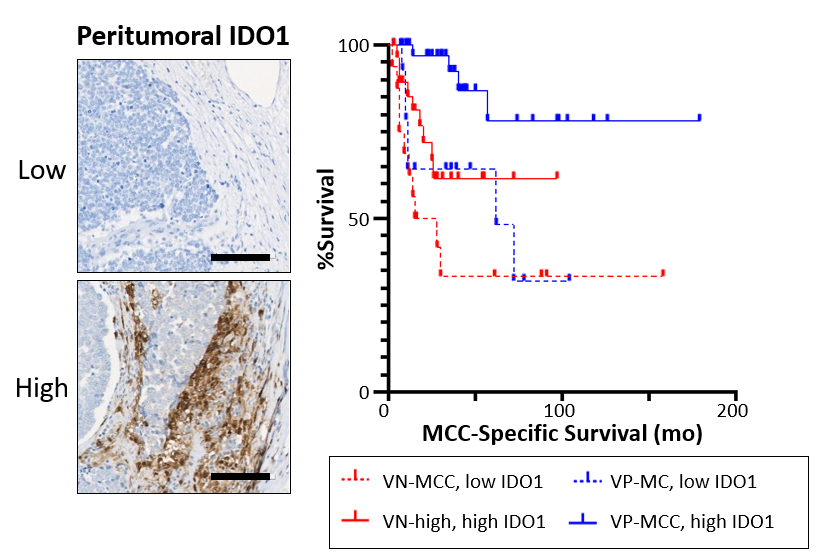Prognostic Subgroups of Merkel Cell Carcinoma Defined
By Camren Clouthier | February 9 2021 A collaboration between the Department of Pathology and the Department of Dermatology examined biomarkers of outcomes in 346 cases of Merkel cell carcinoma (MCC), an aggressive skin cancer. The study, led by Dr. Paul Harms, includes the team of Drs. Xiaoming Wang, Rahul Mannan, May Chan, Douglas Fullen, Rajiv Patel, Javed Siddiqui, Steven Hrycaj, and Scott Tomlins. The study was published in the recent edition of Clinical Cancer Research.
A collaboration between the Department of Pathology and the Department of Dermatology examined biomarkers of outcomes in 346 cases of Merkel cell carcinoma (MCC), an aggressive skin cancer. The study, led by Dr. Paul Harms, includes the team of Drs. Xiaoming Wang, Rahul Mannan, May Chan, Douglas Fullen, Rajiv Patel, Javed Siddiqui, Steven Hrycaj, and Scott Tomlins. The study was published in the recent edition of Clinical Cancer Research.
First, the research team confirmed previous studies showing that tumors with Merkel cell polyomavirus (MCPyV) were associated with an overall more favorable clinical course. Next, they used next-generation sequencing to identify predictive biomarkers specific to each subgroup: virus-positive (VP) MCC and virus-negative (VN) MCC.
 Experts discovered that high expression of inflammatory markers (such as granzyme or IDO-1) was associated with better prognosis, but only in the VP-MCC group. Researchers further found that cellular oncogene mutations were correlated with worse outcomes in VP-MCC but not VN-MCC and that a mutation in the tumor suppressor TP53 emerged with tumor evolution in VP-MCC.
Experts discovered that high expression of inflammatory markers (such as granzyme or IDO-1) was associated with better prognosis, but only in the VP-MCC group. Researchers further found that cellular oncogene mutations were correlated with worse outcomes in VP-MCC but not VN-MCC and that a mutation in the tumor suppressor TP53 emerged with tumor evolution in VP-MCC.
"Findings indicate that VP-MCC and VN-MCC subgroups of tumors are associated with differences in the tumor genome and anti-tumor immunity, with relevance to patient outcomes and possibly therapeutic susceptibilities," notes. Dr. Harms.
—
The full publication in Clinical Cancer Research is available here.
 ON THE COVER
ON THE COVER
 ON THE COVER
ON THE COVER
 ON THE COVER
ON THE COVER
 ON THE COVER
ON THE COVER
 ON THE COVER
ON THE COVER
 ON THE COVER
ON THE COVER
 ON THE COVER
ON THE COVER
 ON THE COVER
ON THE COVER
 ON THE COVER
ON THE COVER
 ON THE COVER
ON THE COVER
